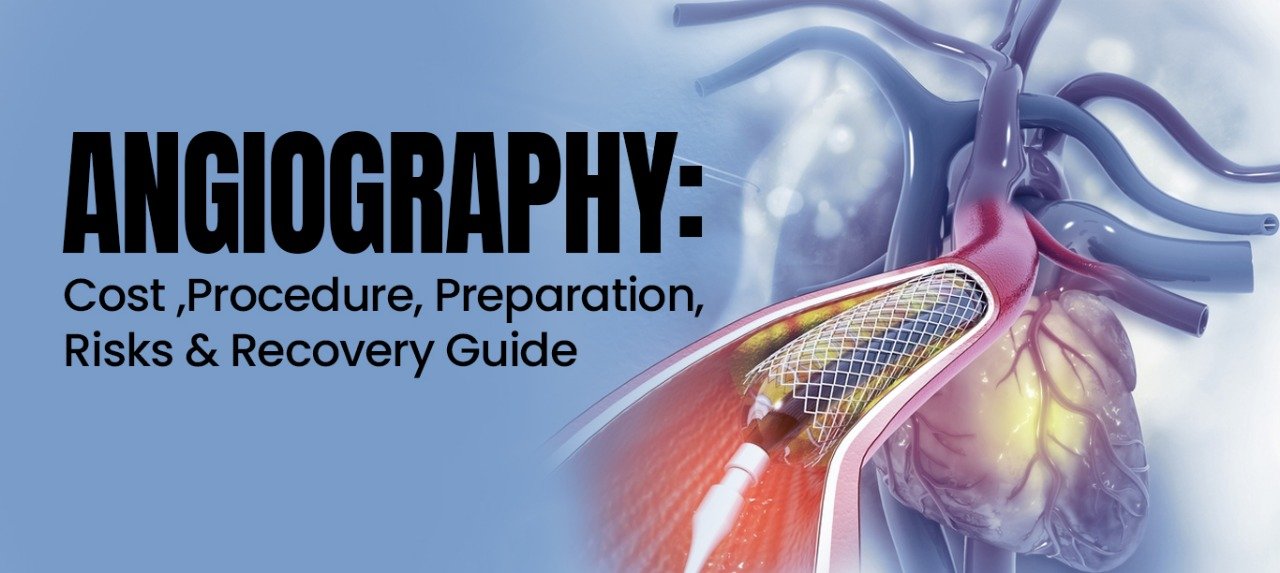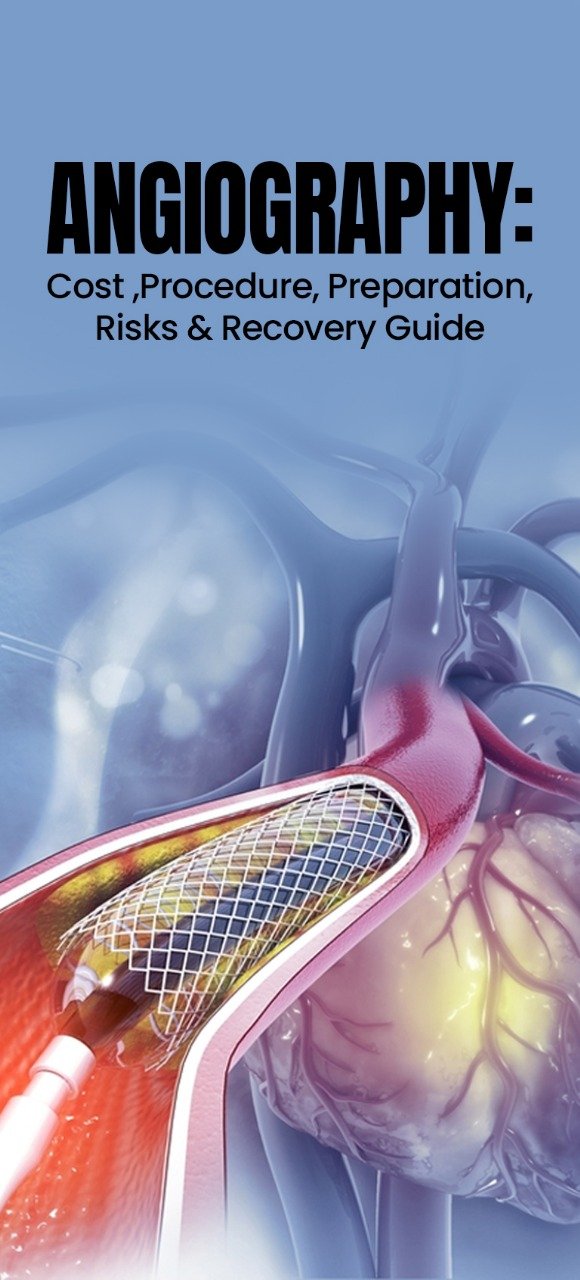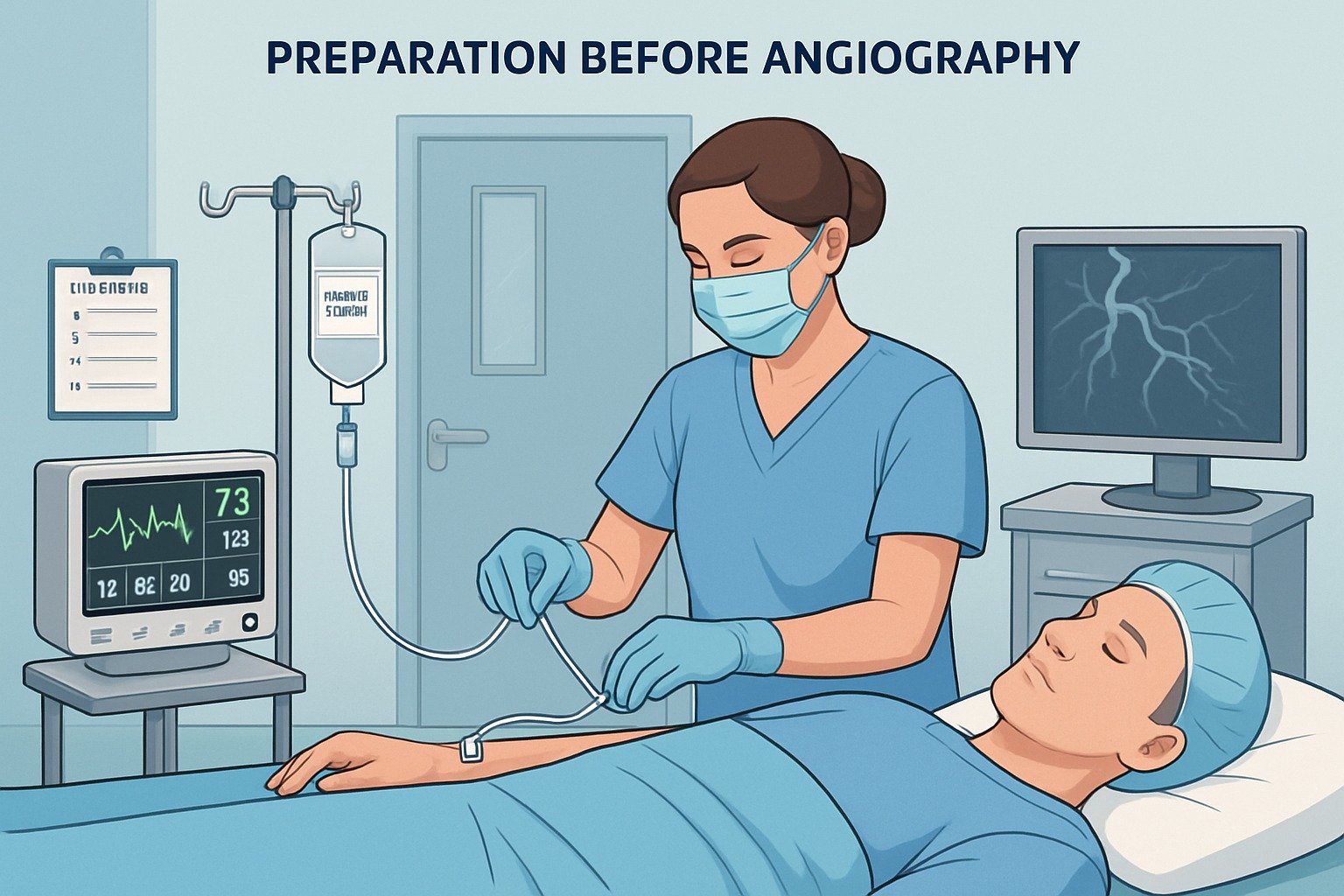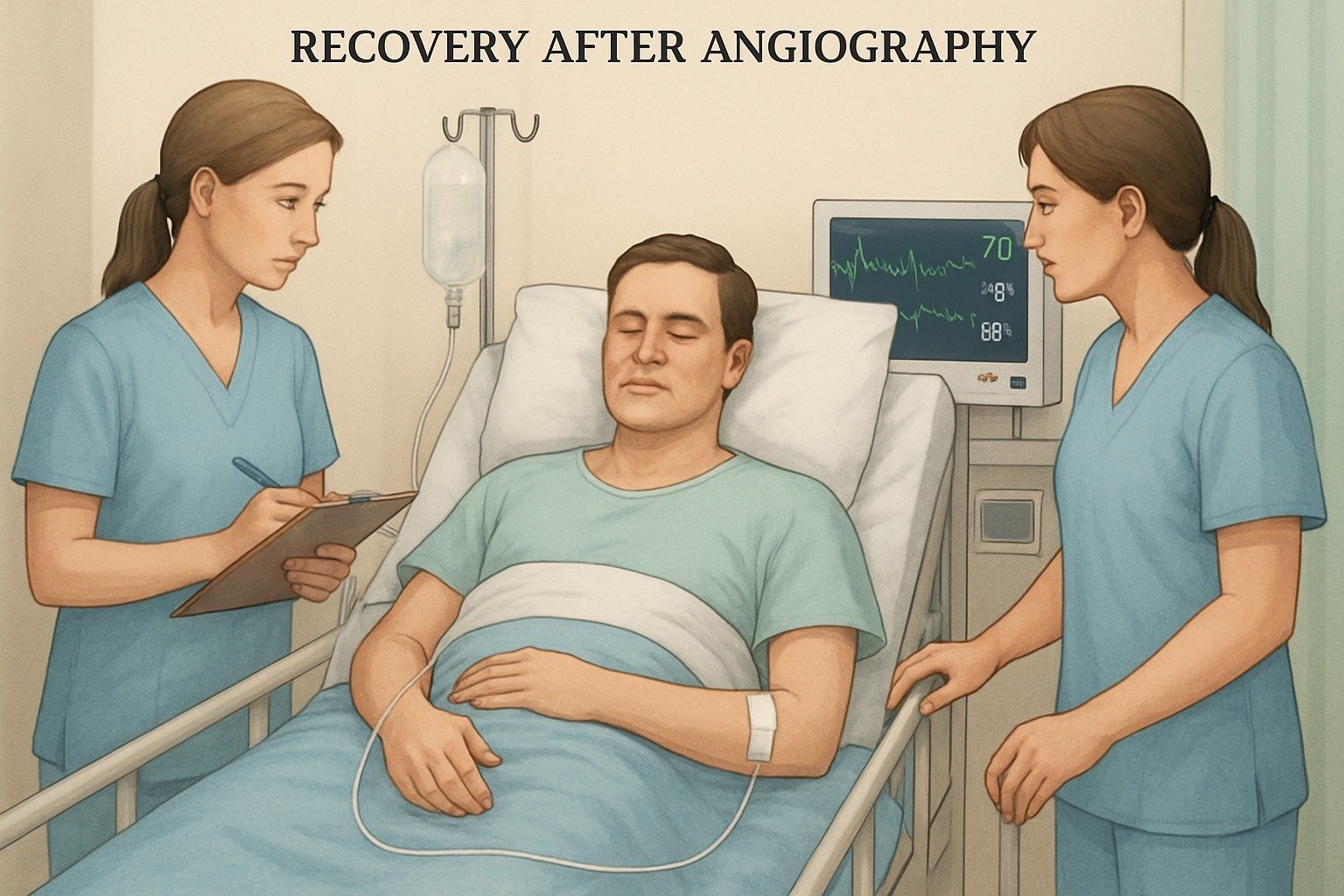

Angiography is a crucial medical imaging technique used to visualize the blood vessels of the heart, brain, and other parts of the body. It helps doctors detect blockages, aneurysms, or other vascular abnormalities that may pose serious health risks. Understanding angiography: cost, procedure, preparation, risks & recovery guide is essential for anyone scheduled for the test. Advanced options like MRI angiography in Chembur provide detailed, non-invasive imaging, making it easier for physicians to diagnose and plan treatment accurately. This blog covers the procedure, types of angiography, preparation steps, risks, costs, and recovery tips to help you feel informed and confident.
Angiography is a diagnostic imaging test that allows physicians to view the inside of your blood vessels. There are several types, including Coronary Angiography in Chembur, cerebral angiography, and peripheral angiography. By injecting a contrast dye and using X-ray, CT, or MRI imaging, doctors can identify blockages, aneurysms, or narrowing of arteries. Unlike other imaging tests, angiography provides real-time images and allows for precise diagnosis and planning of treatments like angioplasty or stenting.
Angiography is recommended for patients experiencing symptoms such as chest pain, shortness of breath, dizziness, or irregular heartbeat. It is commonly used to diagnose conditions like coronary artery disease, aneurysms, blood clots, or peripheral arterial disease. Risk assessment is an important step, especially for individuals with diabetes, kidney issues, or a history of heart problems. Consulting a cardiologist in Chembur can help determine if angiography is appropriate for your condition.
Each type has its advantages and limitations. For example, CT angiography heart in Chembur is less invasive, whereas catheter angiography allows for immediate treatment if a blockage is found. Choosing the right method depends on your health condition, symptoms, and the doctor’s recommendation.
The angiography procedure involves several key steps:
A qualified best heart doctor in Chembur will monitor the procedure to ensure accuracy and patient safety.

Proper preparation is essential to ensure a safe and successful angiography:
Following the doctor’s instructions carefully helps minimize complications and ensures the procedure goes smoothly.
The cost of angiography varies based on factors such as the type of angiography, hospital, city, and the experience of the doctor. In India, the price can range from moderate to high depending on whether it’s conventional, CT, or MRI angiography. Many hospitals also offer insurance coverage or cashless options to ease financial concerns. For personalized guidance, you can consult a cardiologist in Chembur who can provide a detailed cost estimate based on your specific needs.
While angiography is generally safe, certain risks exist:
Discussing your medical history with the best heart doctor ensures that all precautions are taken to minimize risks.

Recovery after angiography is typically quick, but following guidelines is essential:
Proper care ensures a smooth recovery and reduces the chances of complications.
To maintain heart health and optimize recovery after angiography:
Consulting a cardiologist in Chembur can provide personalized advice based on your medical history.
Angiography is an essential diagnostic tool for detecting and treating heart and vascular conditions. Understanding angiography: cost, procedure, preparation, risks & recovery guide empowers patients to make informed decisions and follow proper care protocols. Early detection and timely treatment can prevent serious complications. If you are experiencing heart-related symptoms or require angiography, consulting Dr. Amit Patil, one of the best heart doctors in Chembur, ensures expert care, accurate diagnosis, and personalized treatment plans.